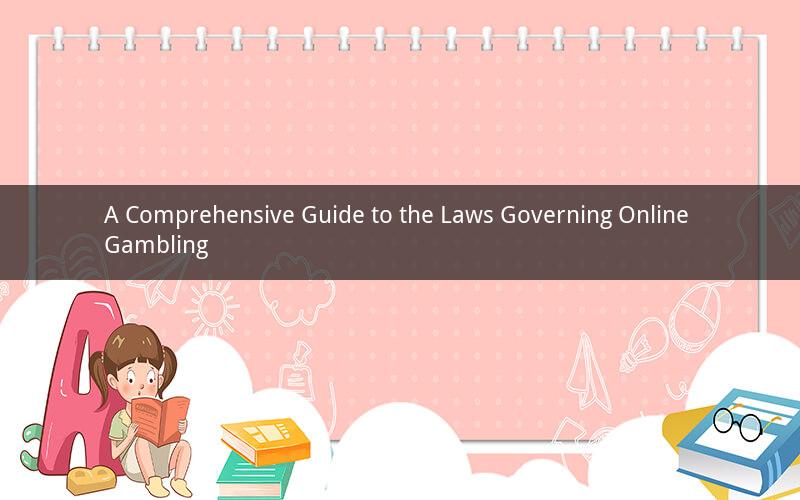
Online gambling has become an increasingly popular form of entertainment across the globe. With the rapid advancements in technology, it is no surprise that online gambling platforms have gained significant traction. However, the rise of online gambling has raised numerous legal concerns, prompting governments to impose regulations to ensure the safety and fairness of the industry. In this article, we will delve into the laws that regulate online gambling, examining the legal frameworks in various countries and discussing the implications for both operators and players.
1. United States
The United States has a complex legal landscape when it comes to online gambling. The Wire Act of 1961 prohibits the use of wire communication for sports betting and lottery tickets, but it does not explicitly ban online gambling. In 2011, the Department of Justice clarified that the Wire Act only applies to sports betting, leading to a surge in state-level online gambling legislation.
Today, several states have legalised online gambling, including Nevada, Delaware, New Jersey, and Pennsylvania. These states operate under a framework that requires online gambling operators to obtain a license from the state gambling commission. The laws in these states focus on consumer protection, responsible gambling, and the prevention of money laundering.
2. United Kingdom
The United Kingdom has one of the most comprehensive legal frameworks for online gambling. The Gambling Act of 2005 regulates all forms of gambling, including online gambling, in the UK. Under this act, online gambling operators must obtain a license from the UK Gambling Commission.
The Gambling Act of 2005 requires operators to ensure that their websites are accessible only to individuals over the age of 18 and to implement measures to prevent problem gambling. Additionally, the act requires operators to maintain transparency, fairness, and security in their operations.
3. Australia
Australia has a mixed legal landscape for online gambling. The Interactive Gambling Act of 2001 prohibits online gambling operators from offering certain types of gambling services to Australian residents. However, the act does not apply to online poker and lottery games.
The Australian government has implemented strict regulations for online gambling operators, requiring them to obtain a license from the Australian Communications and Media Authority (ACMA). The regulations focus on consumer protection, responsible gambling, and the prevention of money laundering.
4. European Union
The European Union has a complex legal landscape for online gambling, with member states having the authority to regulate online gambling within their borders. The EU has implemented the Services Directive, which requires member states to provide equal treatment to online gambling operators established in other EU countries.
However, the EU has not imposed a uniform legal framework for online gambling. Member states have varying approaches to online gambling regulation, with some countries legalising and regulating the industry, while others have banned it outright.
5. Implications for Operators and Players
The laws governing online gambling have significant implications for both operators and players. For operators, obtaining a license from the appropriate regulatory authority is crucial to ensure compliance with legal requirements. Operators must implement measures to protect players, prevent money laundering, and promote responsible gambling.
For players, understanding the legal landscape is essential to ensure that they are participating in a safe and fair environment. Players should only use licensed and regulated online gambling platforms, and they should be aware of the risks associated with gambling.
Q1: Can online gambling operators from one country offer their services to residents of another country?
A1: This depends on the legal landscape in both countries. In some cases, operators may offer their services to residents of other countries if both countries have a legal framework that allows for cross-border online gambling.
Q2: What are the key factors that online gambling operators must consider when obtaining a license?
A2: Key factors include ensuring compliance with legal requirements, implementing measures to protect players, preventing money laundering, and promoting responsible gambling.
Q3: How can players ensure that they are using a safe and legal online gambling platform?
A3: Players should only use licensed and regulated online gambling platforms and check for any warning signs, such as a lack of transparency or security measures.
Q4: What are the main risks associated with online gambling?
A4: The main risks include financial loss, problem gambling, and identity theft. Players should be aware of these risks and seek help if they suspect they may have a gambling problem.
Q5: Can online gambling operators be held liable for the actions of players?
A5: Yes, operators can be held liable for the actions of players if they fail to comply with legal requirements or if they facilitate illegal activities. Operators must take responsibility for ensuring that their platforms are used safely and responsibly.